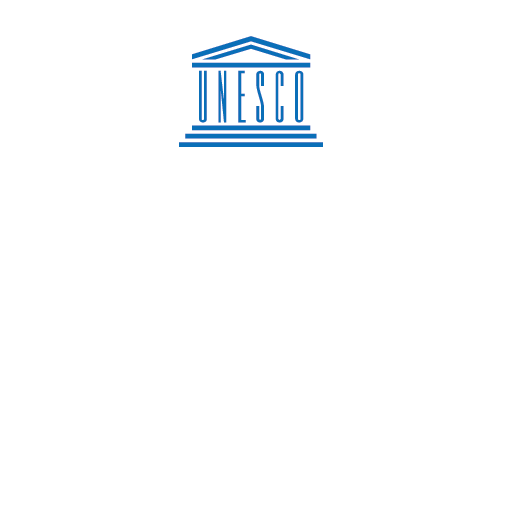UNESCO and Sustainable Development Goals
Heads of State and Government, senior UN officials and representatives of civil society gather in September 2015, as part of the 70th session of the UN General Assembly and have adopted the Sustainable Development Goals (SDGs). These objectives form a programme of sustainable, universal and ambitious development, a programme of the people, by the people and for the people, conceived with the active participation of UNESCO.
UNESCO will contribute to the implementation of the SDGs through its work on:
- Education
- Natural Sciences
- Social and Human Sciences
- Culture
- Communication and Information
- Sustainable Development Goals for Ocean
The Sustainable Development Goals are a call for action by all countries – poor, rich and middle-income – to promote prosperity while protecting the planet. They recognise that ending poverty must go hand-in-hand with strategies that build economic growth and address a range of social needs including education, health, social protection, and job opportunities, while tackling climate change and environmental protection.

Luxembourg and Sustainable Development Goals
In Luxembourg, the main instrument for implementing the Sustainable Development Goals is the national plan for sustainable development. The government has identified 10 priority areas for action:
- Ensure social inclusion and education for all
- Ensure conditions for a healthy population
- Promote sustainable consumption and production
- Diversify and ensure an inclusive and forward-looking economy
- Plan and coordinate land use
- Promote sustainable mobility
- Stop the degradation of our environment and respect the capacity of natural resources
- Protect the climate, adapting to climate change and promote sustainable energy
- Contribute globally to poverty eradication and policy coherence for sustainable development
- Ensure sustainable finances

5 basic principles for sustainable development in Luxembourg
- Maintain a high quality of life and a high level of development for the population living and working in Luxembourg; personal fulfilment through "empowering" freedom
- Respect the ecological, social and cultural rights of future generations and other nations of the planet (future and international responsibilities)
- Respect the ecological limits and the regenerative capacity of nature in our use of the natural resources at our disposal
- Defend social cohesion through equity and solidarity
- Preserve economic prosperity by developing a thriving future economy ´through diversification and socio-ecological innovation.
- Ensure social inclusion and education for all
What has made Luxembourg society strong is its cohesion and the importance given to social policy. Composed of a large number of foreigners (currently almost 48%), it is rich in diversity. The government's priority is to strengthen this cohesion by working against all types of social exclusion and discrimination, by actively combating poverty and by promoting social inclusion, particularly in the workplace. Our society must give each resident, whatever their abilities and origins, the opportunity to participate in the life of the city and to have access to a job that allows them to live in peace.
- Ensure conditions for a healthy population
Health is the most valuable capital a human being possesses and an essential condition for sustainable development. It is also an indispensable prerequisite for a dynamic economy and the maintenance of a high quality of life. In Luxembourg, life expectancy is one year above the average for developed countries (84.4 years for women and 79.9 years for men). But in such a prosperous country, this is not enough. Too many people, especially children, are victims of health problems, pathologies, accidents and risks that could be avoided: road accidents, accidents at work, accidents at home, obesity, drug misuse and HIV are just a few examples. The fight against diseases due to risk factors and causes of early death must be intensified at all levels.
- Promote sustainable consumption and production
In order to improve Luxembourg's large ecological footprint, the government wants to make the circular economy and short circuits a flagship sector of our economy and daily life. In this paradigm shift, all economic actors (financial centre, logistics, industrial production, SMEs, trade, etc.) will have to be involved in defining the objectives for the economic sectors relevant to the country.
- Diversify and ensure an inclusive and forward-looking economy
The debate on the country's future development calls for a more qualitative and inclusive growth that requires a smart, high value-added economy that consumes fewer resources and provides quality jobs that ensure a decent life for all.

- Plan and coordinate land use
Luxembourg is a small territory, barely 2586 km², on which a host of infrastructures and human activities are concentrated in ever greater density. The country is so attractive to foreign people and investors that pressure is felt at all levels: exorbitant property prices, lack of land, air, water and soil pollution, soil fragmentation, asphyxiated infrastructures, increasing pressure on agricultural land... For the government, it is important to provide a global response, without mortgaging the future of the territory or the quality of life of its inhabitants.
- Promote sustainable mobility
The issue of mobility has been a black spot in Luxembourg's policy for decades, despite all the efforts made. 69% of journeys are still made by car today, causing countless congestion, pollution and public health problems. With two-thirds of Luxembourg's greenhouse gas emissions coming from the transport sector, there is an urgent need to reduce mobility-related emissions by promoting public transport, electromobility and active mobility and by adapting fuel taxes, measures that are part of the Integrated National Energy and Climate Plan. The Grand Duchy is the 2nd most motorised country in the world and the government is calling for a radical change of paradigm.
- Stop the degradation of our environment and respect the capacity of natural resources
Given the splendour of its forests and bucolic landscapes, it is difficult for a Luxembourg resident or a visitor to imagine that nature is particularly threatened here. And yet the health of the forests is continuously deteriorating under the combined effect of air pollution and climate change (only one third of the trees are really healthy). The government has taken the decision to intensify measures to increase the share of organic agriculture to 20% by 2025 in order to enhance the value of biological diversity, restore it and use it wisely while maintaining the services provided by ecosystems.
- Protect the climate, adapting to climate change and promote sustainable energy
While Luxembourg is currently meeting its 2020 commitments to reduce greenhouse gas emissions, it is pursuing a greater ambition for 2030. In the Grand Duchy, prosperity and population growth have long been combined with the highest levels in the European Union in almost all consumer sectors that have an impact on the climate: per capita electricity consumption of 11,000 kWh, a living area of 52.4 m² or 0.66 cars ... which translates into high per capita greenhouse gas emissions (20.4 tonnes in 2013). In order to achieve the objectives of the Paris Climate Agreement, Luxembourg will have to adopt a more sustainable way of life, i.e. both drastically reduce its energy consumption and considerably increase the share of renewable energies.
- Contribute globally to poverty eradication and policy coherence for sustainable development
The UN Agenda 2030 is the roadmap that guides the National Plan for Sustainable Development. The actions and measures taken by Luxembourg, both by its government and by economic and civil society actors, also have an impact on the rest of the world, whether far away or closer to home. This impact is direct through the development cooperation policy (1% of its GNI) with which Luxembourg contributes to the socio-economic development of the poorest and most vulnerable countries and populations.
- Ensure sustainable finances
The Paris Climate Agreement, which aims to limit global warming to 2° and in which the Grand Duchy has played a leading role, has accelerated the "Sustainable finance road map" initiative in Luxembourg. It has boosted a process that had in fact been at work for a number of years already. In 20 years, the country has become an important and recognised player in microfinance and inclusive finance. Its stock exchange is already a world leader in the listing of green bonds. Financing the fight against climate change requires ambitious solutions and huge capital flows. A lot of expertise has been acquired in Luxembourg in these areas and the players are brought together in a platform, the Climate Finance Task Force, which will make it possible to multiply tenfold the means implemented in this fight, the stakes of which go beyond anything the world has ever seen before.

